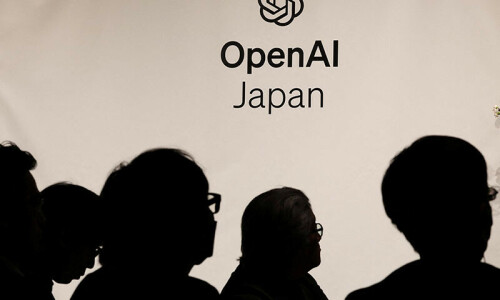FINANCE Minister Miftah Ismail says the inflationary budget for FY23 focuses on two things: a) fiscal consolidation to save the economy, and b) protection of underprivileged and vulnerable populations against the adverse impacts of the austerity policies being executed for reviving the IMF funding programme.
Speaking at the post-budget news conference yesterday, he recounted the measures proposed in the budget for stabilising the economy and shielding poor to middle-income segments from the consistently rising inflation caused by surging fuel prices.
Indeed, the budget is a mix of austerity but inflationary measures necessary to meet IMF conditions for the restoration of its suspended funding to support the country’s deteriorating balance-of-payments position, and tax relief and goodies for almost everyone — students, civil servants, filmmakers, farmers, industry, etc. It also attempts to raise tax revenues, mostly through directly taxing affluent persons and landholdings of the rich.
Read: FY23 budget — Appeasing IMF while preserving political capital
In reconciling IMF-mandated policies with populist measures, the government has, however, set some difficult macro targets for itself. For example, the budget plans to grow the economy by 5pc and hold down annual average headline inflation to 11.5pc. How? Independent estimates project the growth rate to fall to 3pc to 4pc from this year’s nearly 6pc and inflation to shoot up to 20pc from 11.7pc on the back of projected reduction in energy subsidies and tax recoveries. Likewise, its revenue collection and expenditure plan aiming to produce a primary balance surplus of 0.2pc of GDP from the present deficit of 0.7pc also appears unrealistic.
Mr Ismail’s reluctance to address questions regarding the surprising exclusion of expected IMF flows in budget estimates strengthens the impression that the global lender must have its reservations over the projected macro numbers in the budget. Even if that is not the case, the failure to collect the projected revenues in the first few months for one reason or another may land Pakistan in trouble with the Fund once again, with the lender demanding more fiscal measures mid-year, or earlier, to cover the shortfall.
The possibility of this appears high given that the budget assumes that international oil and commodity prices will drop in the coming months and the political challenge thrown by Imran Khan’s PTI to the ruling coalition will fizzle out soon. What if the opposition is able to bring the inflation-stricken people on to the roads or the global commodity super cycle does not relent? In either case, chances of a review of the budget cannot be ruled out in the next three to six months. There’s no doubt that it is a tough job for a government facing the prospect of default on its debt payments unless it arranges foreign flows soon — much before the next elections in 2023. But the rulers will have only themselves to blame if they set impractical goals that they are unable to deliver on.
Published in Dawn, June 12th, 2022












































